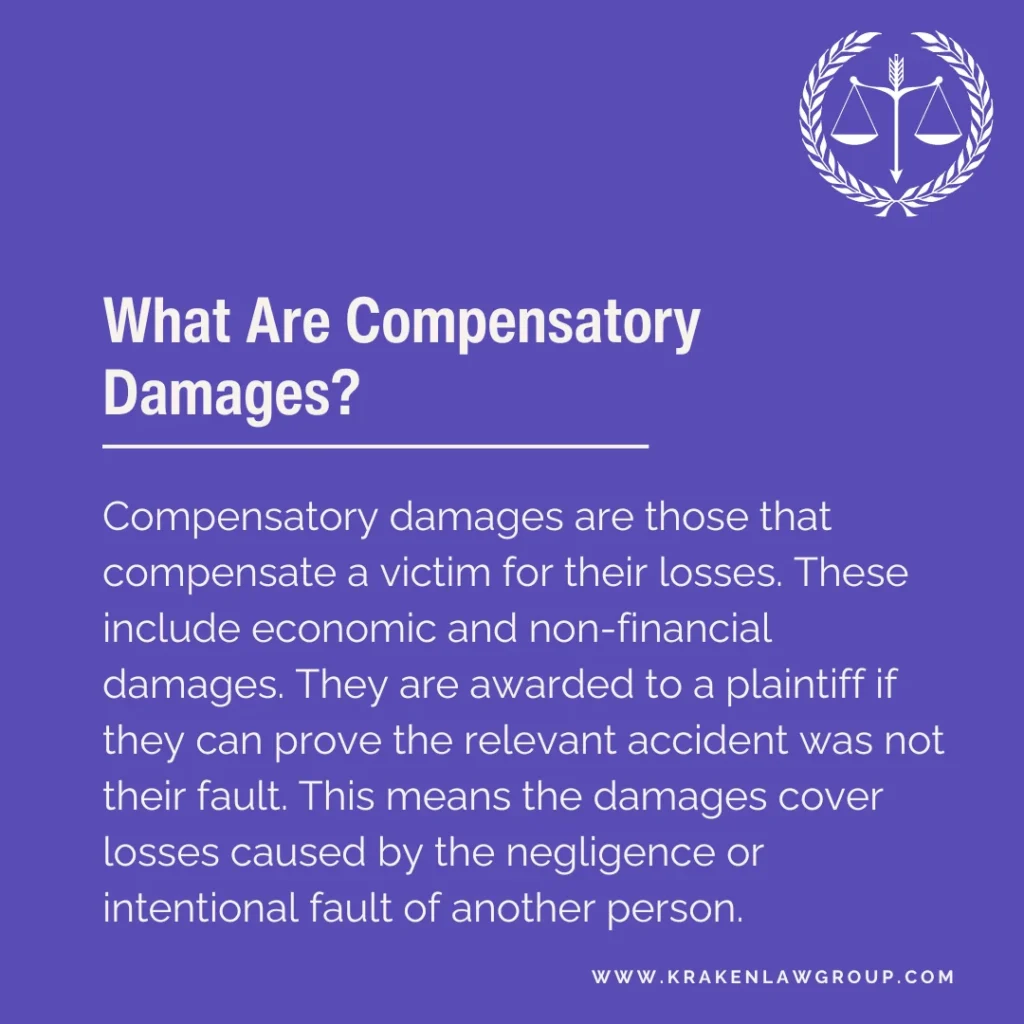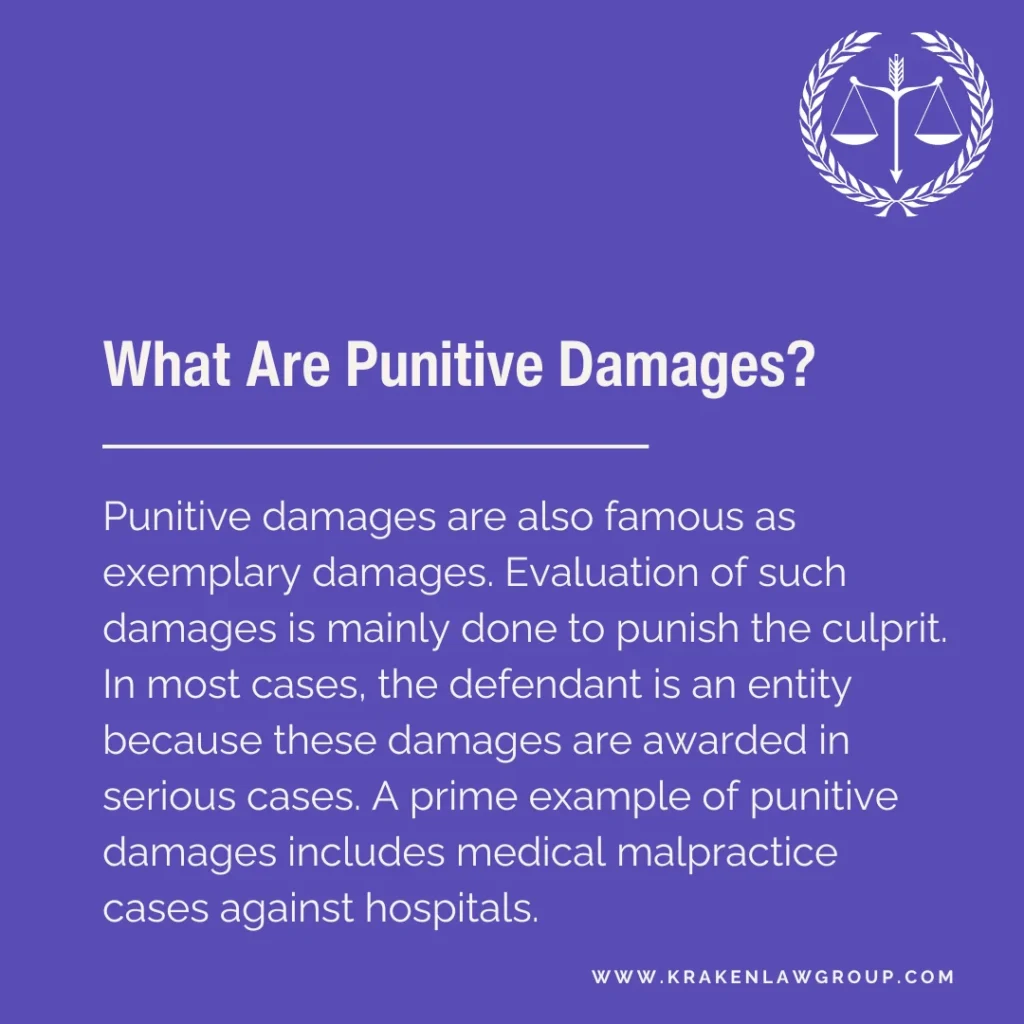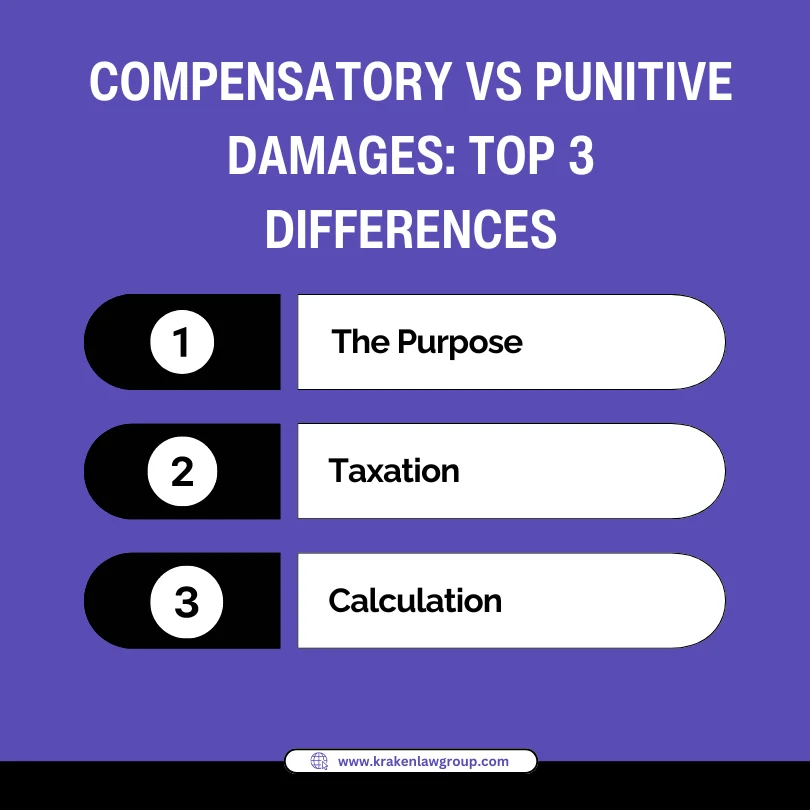You can file a lawsuit under different claims to seek compensation or punishment. The case can also be a combination of both of these things.
Compensatory and punitive damages are terms related to such lawsuits. This is why you may be wondering about them.
The good news is you can learn about the differences between compensatory vs punitive damages below.
What Are Compensatory Damages: Compensatory Damages Examples

Compensatory damages are those that compensate a victim for their losses. These include economic and non-financial damages.
They are awarded to a plaintiff if they can prove the relevant accident was not their fault.
This means the damages cover losses caused by the negligence or intentional fault of another person.
Punishing the other party is not the main purpose of compensatory damages. They are also divided into two types according to their primary purpose of compensating a plaintiff:
Special Damages
Special damages are those that belong to the financial category. All expenses you suffered because of the accident come under special damages.
Examples of special compensatory damages include:
- Medical bills
- Lost income
- Property damage such as car damage costs
- Legal costs
The top feature of these damages is you can prove them using tangible evidence. For instance, you may submit the physical invoices of your medical costs.
General Damages
General damages are more difficult to comprehend when understanding compensatory vs punitive damages. Quantifying them is difficult because they mainly include intangible losses.
Examples of general damages include:
- Emotional suffering
- Physical pain
- Disfigurement
- Bodily impairment
- Decreased lifespan
- Long-term care
- Loss of benefits of a relationship
Injuries such as defamation also come under these damages. A court will award these damages according to the injury severity.
The more serious your wound is, the greater will be your compensation value.
What Are Punitive Damages: Punitive Damages Examples

Punitive damages are also famous as exemplary damages. Evaluation of such damages is mainly done to punish the culprit.
In most cases, the defendant is an entity because these damages are awarded in serious cases. A prime example of punitive damages includes medical malpractice cases against hospitals.
For example, a healthcare company may sell heart rate monitoring patches knowing that they don’t work. This can lead to deaths, so such type of damage comes under the punitive category.
Another example of punitive damages includes drunk driving cases. An intoxicated driver may hit you from their car and flee the scene. The court will help you receive compensation and punitive damages for such incidents.
The primary purpose of these damages is punishing the culprit not financial compensation. However, you’ll still receive some sort of financial award in most cases.
Are Compensatory And Punitive Damages Taxable?
Punitive damages may be taxable, while compensatory damages are not. That is because of their different purposes and awarding conditions.
There may also be exceptions in which your punitive damages may not be taxable. You may also have to pay tax on interest on the compensatory settlement in some cases.
So good understanding of the differences between compensatory vs punitive damage is necessary.
A personal injury lawyer will be the best person to guide you about the taxation of compensatory vs punitive damages.
Compensatory Vs Punitive Damages: Main 3 Differences

Let’s look at the top differences of compensatory vs punitive damages:
1. The Purpose Behind Compensatory Vs Punitive Damages
Compensatory vs punitive damages can be distinguished using their purposes. The former’s aim is to help the victim recover from losses financially and emotionally.
Meanwhile, punitive damages aim to punish the at-fault individual. This is regardless of whether the act was intentional or due to negligence.
So any financial award you will receive under punitive damages will serve as the defendant’s punishment. They will not be given to cover your losses so it may not amount to your expenses accurately.
Sometimes a case of compensatory and punitive damages may be combined. This usually happens when the crime is too severe, so the culprit must receive punishment.
For example, being hit by a drunk driver may cause you to experience burdening medical bills. This means you must receive compensatory damages.
Since the driver breached their care of duty by driving under the influence and running from the scene, they must also receive punishment.
The primary purpose of the punishment is to prevent the individual from performing the same crime.
2. Taxation Of Compensatory Vs Punitive Damages
The taxation of compensatory vs punitive damages occurs differently. Usually, the former damages are not taxable because they have to cover your financial losses.
However, punitive damages are taxable because you receive the payment so that the defendant fulfills their punishment. This is why they are considered just like general income.
You’ll always have to pay tax on punitive damages except in one condition. If the accident leads to wrongful death, you don’t have to pay tax.
Meanwhile, some cases of compensatory damages may also be taxable. For instance, medical costs that have formerly been deducted may be taxable.
This is why contacting a personal injury lawyer is essential for understanding the taxation of punitive vs compensatory damages.
3. Calculation Of Compensatory Vs Punitive Damages
The calculation of both damages is done differently due to their primary purposes. Compensatory damages can be determined using physical evidence such as:
- Invoices of medical bills
- Receipts of property damage repair
- Out-of-pocket expenses value
The court may also consider the total economic damages to determine an award for general damages using multiplier or other methods. There may also be maximum limits on specific damages.
For instance, in Florida, non-economic or general damages have a cap of $500,000. Meanwhile, the value of punitive damages is determined according to the case’s severity.
The maximum limit of punitive damages is also set differently. These damages cannot amount to more than three times the compensatory damages value in Florida.
FAQs
What Is The Main Difference Between Compensatory And Punitive Damages?
The main difference between these damages is their purpose. Compensatory damages will always recover the victim’s losses. However, punitive damages will only punish the perpetrator, not cover any losses.
What Is The Difference Between Punitive Damages And Pain And Suffering?
Punitive damages are serious crimes such as medical malpractice for which the at-fault party must receive punishment. Pain and suffering are general compensatory damages that usually recover intangible losses of the victim.
What Are Some Examples Of Punitive Damages?
A few examples of punitive damages include hit-and-run cases involving intoxicated drivers, medical malpractice cases, product liability incidents, and cases involving intentional harm.
Who Gets Punitive Damages?
Punitive damages are usually punishing a defendant. The at-fault party will have to offer the relevant monetary award to the plaintiff for completing the punishment. Sometimes they may have to serve jail time along with offering a financial fine.
Hire A Personal Injury Lawyer In Florida To Claim Your Damage
This is all you must know about compensatory vs punitive damages. You can seek them during car accidents, truck crashes, slip and fall injuries, and workplace injury cases.
Consulting a lawyer for these damages will be helpful because their laws differ significantly. So contact us now to connect with our expert personal injury lawyers.


